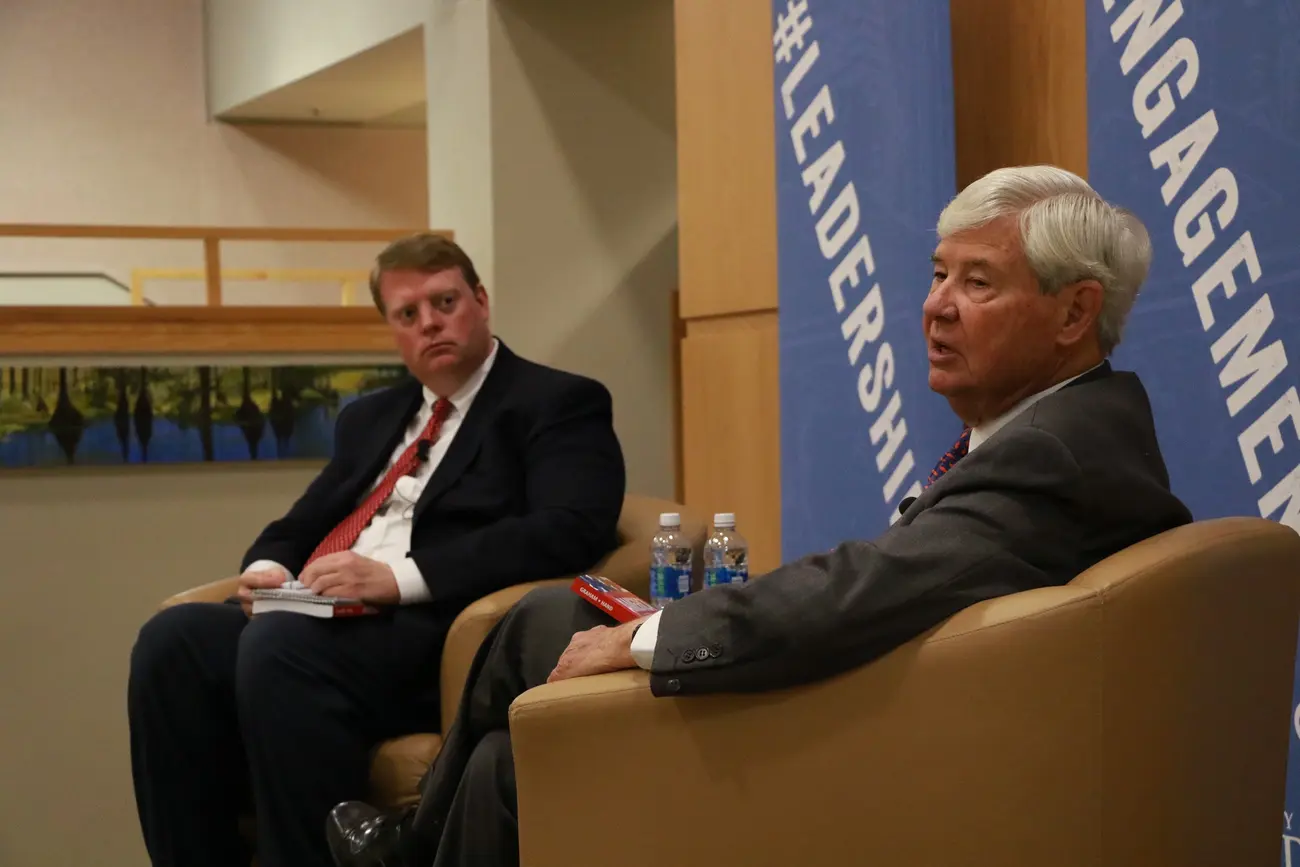Senator Bob Graham and attorney Chris Hand, co-authors of the book “America, The Owner’s Manual: You Can Fight City Hall and Win,” participated in a panel discussion recently at the Zora Neale Hurston Festival of the Arts and Humanities in Eatonville.
The topic was “Citizen Activism Works.” The panelists talked about effective ways that anyone with passion for a particular issue can make the government work for them.
Senator Bob Graham is one of Florida’s most respected and popular politicians. He served four years in the Florida legislature before becoming governor in 1978. He left office with an 83% approval rating, and beginning in 1986, served three consecutive terms in the United States Senate. He created the Bob Graham Center for Public Service at the University of Florida.
“Voting may be the single most important thing you do, because that selects the people who will use their constitutional responsibilities to advance the interests of the nation, but it’s not the end of your citizenship responsibilities,” says Graham. “We all have the ability to shape our community and our state and our nation by our own action.”
Attorney Chris Hand has served as speech writer and press secretary for Senator Graham, and was Chief of Staff for the City of Jacksonville under Alvin Brown, that city’s first African American mayor.
The advice that Senator Graham and Chris Hand provide in their book is non-partisan. They offer step-by step instructions for engaging with the government effectively.
“For those who are pleased with the election results, the question has been ‘what do we do now to hold elected officials accountable to the change they’ve promised to bring?’” says Hand. “For those who were disappointed by the election results its ‘did I do enough? Are there other ways that I can get involved?’ This book is hopefully one of the answers to that question.”
In their book, Graham and Hand present the stories of 35 people and groups who have challenged the government successfully on a variety of issues. Several of their examples are from Florida.
“It wasn’t that long ago that there was a strong proposal to demolish what is now South Beach,” says Graham. “The economic and political leaders of the city felt that Disney had built a wall across Florida, and that tourists wouldn’t come south to their traditional places such as Miami Beach, unless they had similar tourist attractions to Disney. The idea was to take down much of the old Art Deco architecture and build a theme park.”
Barbara Capitman led an effort to save and restore the iconic Art Deco buildings of South Beach.
“Her persistence and her skill in manipulating a very complex bureaucratic process to get South Beach designated as a National Historic District were the keys to saving South Beach and really saving Miami Beach as an international destination,” says Graham.
Another example of effective, active citizenship discussed by Graham and Hand involves people from the Florida Keys fighting a dramatic increase in insurance rates.
The series of hurricanes in 2004 and 2005 had a significant impact on much of the state, but not the Florida Keys. Residents were shocked when they saw a dramatic rise in their property insurance rates, even though they had not been affected by the storms.
“So they used one of the most important skills of effective citizenship,” says Hand. “They did their homework. They consulted with experts, they did research, and they learned that these rate increases really weren’t based on anything justifiable. Having done this excellent homework and turned themselves into credible citizen advocates, they took their case to Tallahassee and were successful in having these insurance increases rolled back.”
Graham and Hand say that if you know your facts and become a credible citizen advocate, you have a much greater chance of success in making the government respond to your concerns.
Besides having passion for an issue, and preparation of a credible argument, the authors say that persistence is the key to effective citizenship.
“Citizenship isn’t intuitive,” says Graham. “You’re not born with an automatic awareness of what it takes to be an effective citizen. It’s a skill like playing a sport or a musical instrument.”
